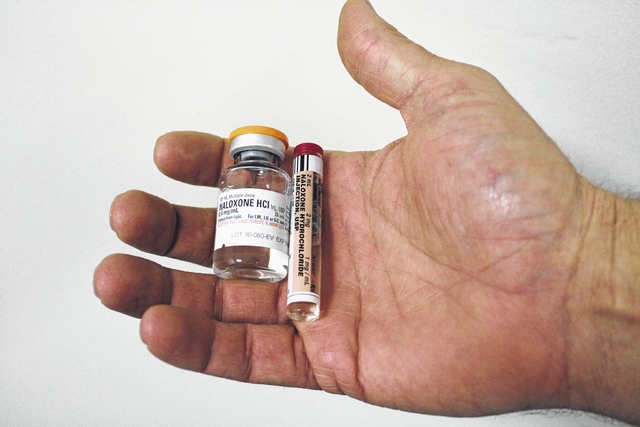Editor’s note: This is the fourth article in a series about opioid addiction, including personal testimonies, resources and awareness efforts. This article focuses on medication that can reverse the effects of an overdose.
Sampson County is now among the counties in North Carolina with the highest number of drug-related deaths each year. This epidemic is leading to a nationwide initiative to combat the growing problem with opioid use.
Naloxone, also known as Narcan, is now being used as a safe and effective drug that can reverse the effects of an overdose of opioid medication.
An opiate is the umbrella which covers a broad category and includes pills and pain relievers and heroin. Examples of an opiate are hydrocodone, morphine, oxycodone and other generic names like Lortab, Vicodin and Percocet.
According to Wanda Robinson, director of the Sampson County Health Department, an opioid overdose occurs when someone takes too much opioid based medication or drug than the body can handle.
“Naloxone can bring someone back from certain death,” Eileen Jackson, member of the Coalition, said.
According to Jackson, the life-saving drug is available at Walgreens and can be applied to insurance.
“You can go in and ask for it and get it for you or a family member,” Jackson shared.
The Sampson County Health Department is now offering free Naloxone rescue kits.
“When you see the statistics, it makes you want to get it out there,” Robinson explained.
Signs of an overdose are slow to no breathing, slow or no pulse, blue or gray skin, blue or purple fingertips and lips and the person is unresponsive. Health care officials urge anyone who encounters someone experiencing an overdose to immediately administer Naloxone and call for emergency assistance.
“You, your family members or caregivers should know more about ways to prepare, act and respond to an opioid overdose in the event an emergency occurs,” Robinson said.
North Carolina’s Good Samaritan’s Law allows someone to call 911 during a drug overdose, keeping both the victim and caller free from prosecution of possession of small amounts of drugs, drug paraphernalia, underage possession or consumption of alcohol and violation of parole and probation conditions.
According to data retrieved from NC DETECT, the North Carolina Disease Event Tracking and Epidemiologic Collection Tool, the number of deaths related to drug overdoses is high, but thanks to quick medical care, the numbers are significantly lower than that of the number of treated patients. In 2016, 72 people were treated locally for an unintentional opioid overdose. That number grew from the 57 patients in 2015.
Sampson County Substance Abuse Coalition
Formerly known as the Methamphetamine Task Force, the group reorganized in 2015 with a new mission. That mission is to tackle drug addiction and overdose in Sampson County. The Coalition believes that drug addiction can be prevented if halted at an early stage of use and that local communities and groups are responsible for preventing drug addiction within the community.
According to B.G. Kennedy, member of the Coalition, moving forward the group would like to continue to work to increase the number of resources available to help mitigate drug addiction.
Funds recently received through a grant will allow the SCSAC to offer Naloxone injectors to aid with the emergency treatment of victims.
The SCSAC aims to help prevent drug addiction and overdose by spreading awareness withing the community.
“Being a victim of drug addiction is incredibly frightening and intimidating, and we want victims to know that it’s safe to reach out and get help to better themselves,” the Coalition pamphlet reads.

